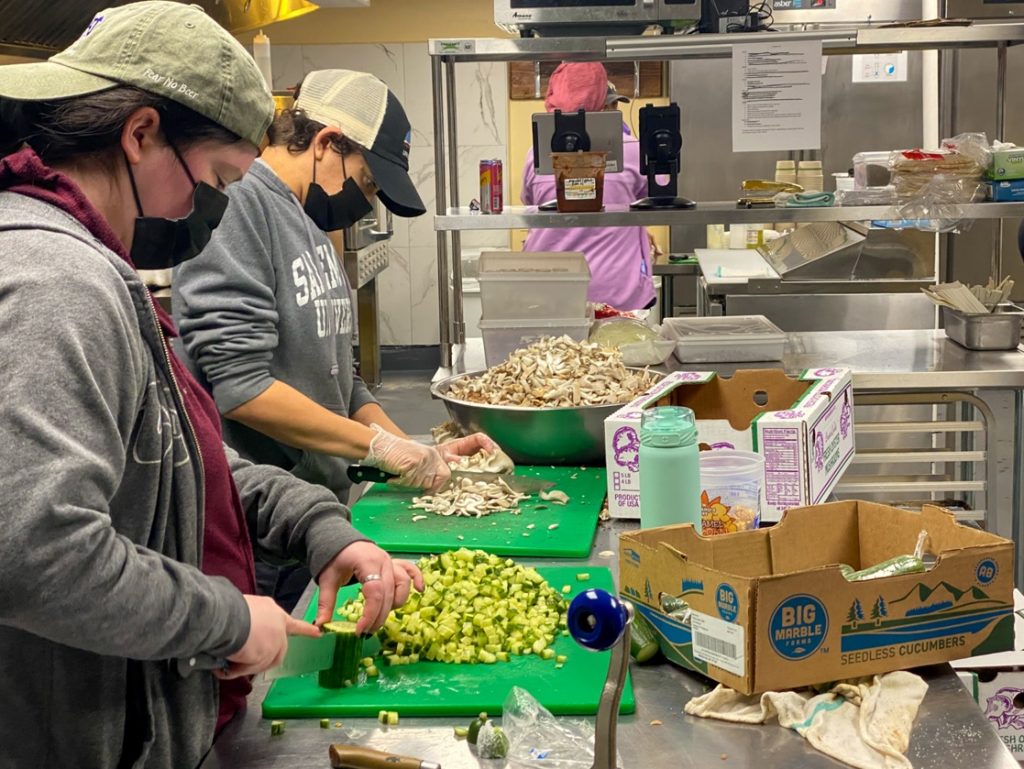
Boston is one of the best food cities in the United States. Known for its hearty New England cuisine, Boston’s culinary scene has evolved over the years to reflect the diversity of its communities.
Koshari Mama, one of Massachusetts’ few Egyptian restaurants, sits in the heart of affluent Somerville, its simple and unassuming storefront inviting passersby to come in and experience the culinary delights of a culture that is equally simple and unassuming.
The vegan restaurant owes its name to its specialty: Koshari, a beloved Egyptian street food dish that consists of a bed of rice, lentils, and macaroni, dressed with marinara and a garlic vinegar sauce, and garnished with chickpeas and crispy fried onions.
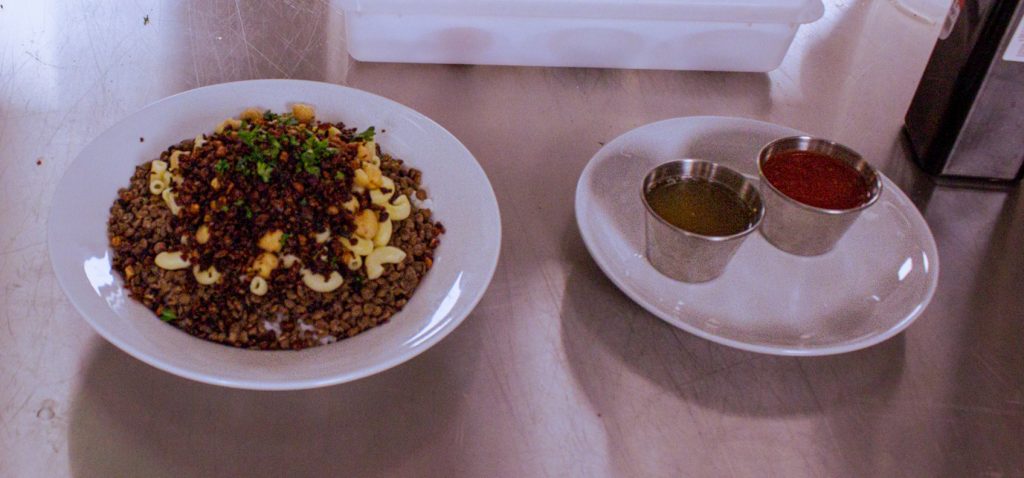
Although beloved by rich and poor alike, the dish is a symbol of the Egyptian proletariat’s cuisine due to its cheap and widely available ingredients. It has fueled and nourished the country’s low-income families for generations, becoming an iconic national dish that strongly defines Egyptian cuisine.
“It is a very typical street food. It is cost-efficient for the general public … When you eat it in Cairo, especially in a very simple restaurant or a street cart … usually what they do is they will get leftover pieces of macaroni—which is why sometimes you will see, you know, a little piece of ditalini with spaghetti, because it is cheaper to buy it that way,” Egyptian American restauranteur and co-owner of Koshari Mama Sahar Ahmed explains.
The other half of the restaurant’s name is equally interesting. Just as generations of Egyptians have for centuries, Ahmed’s mother has bequeathed these recipes to her, and she, in turn, has passed it down to her daughter, Dina Fahim, with whom she runs and owns Koshari Mama.
As is the case with many diaspora Egyptians, this Egyptian American family turned to food for comfort and connection. “I came here when I was six years old. I immigrated with my family from Egypt … My mom was very homesick … she didn’t know how to speak English, she knew only Arabic and French. So she had a tough time … she was trying to figure out how to fit in. She missed her family, she missed the food, she missed everything. So she started making the things that were familiar to her. And one of them was Koshari,” Ahmed recalls.
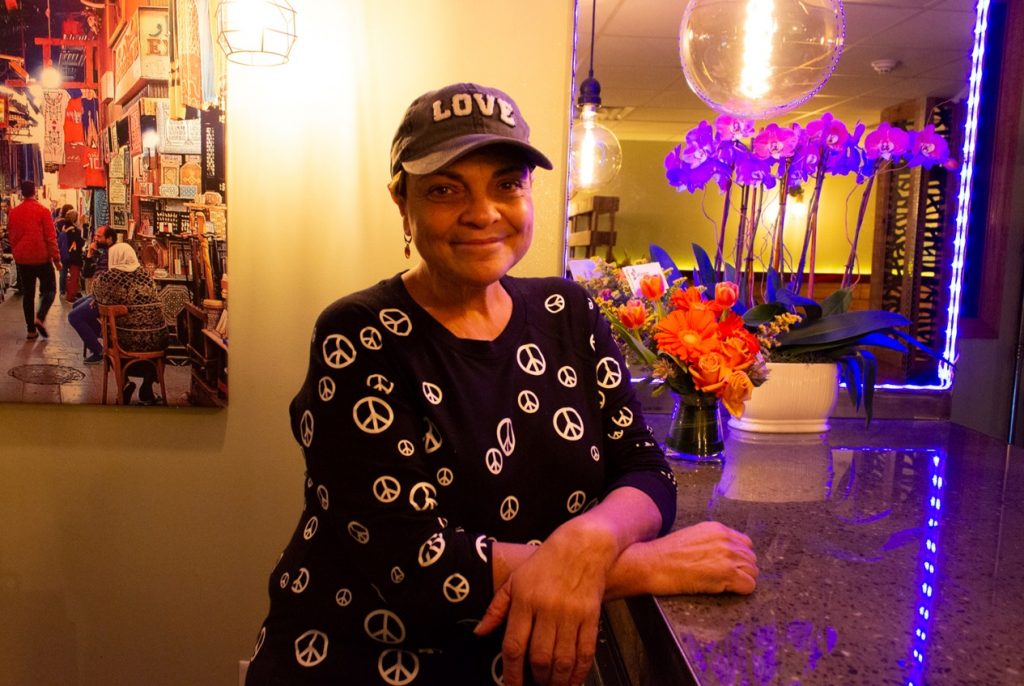
Like many communities of color in the US, Egyptian Americans came bearing the gift of their culinary heritage and traditions and, in the process, enriching American life. For Ahmed and Fahim, Koshari wasn’t just a connection to their homeland, it became the focus of how they related to their fellow Americans.
“[My mom would invite] people over [to] our house to eat food with us. And it is these connections with people that I remember as a kid that made us want to start Koshari Mama …If we [create] a place and make people feel at home, and just kind of try the things that we love and grew up with, then it is just another way to connect to people and to bring them closer together,” Ahmed says.
To 28-year-old Fahim, the dish brings back memories of her childhood and family ties in Egypt. “To get from school to my house in Egypt, it sometimes took like an hour and a half to two hours from the school I was going to, so the bus driver would see that we are all hungry and that all we wanted to do was eat something. So every Thursday, he would literally stop outside of a Koshari shop and about 20 of us would get off and get Koshari to eat on the way home. Would it ever happen here? Absolutely not,” the BU Culinary Arts grad says with a smirk.
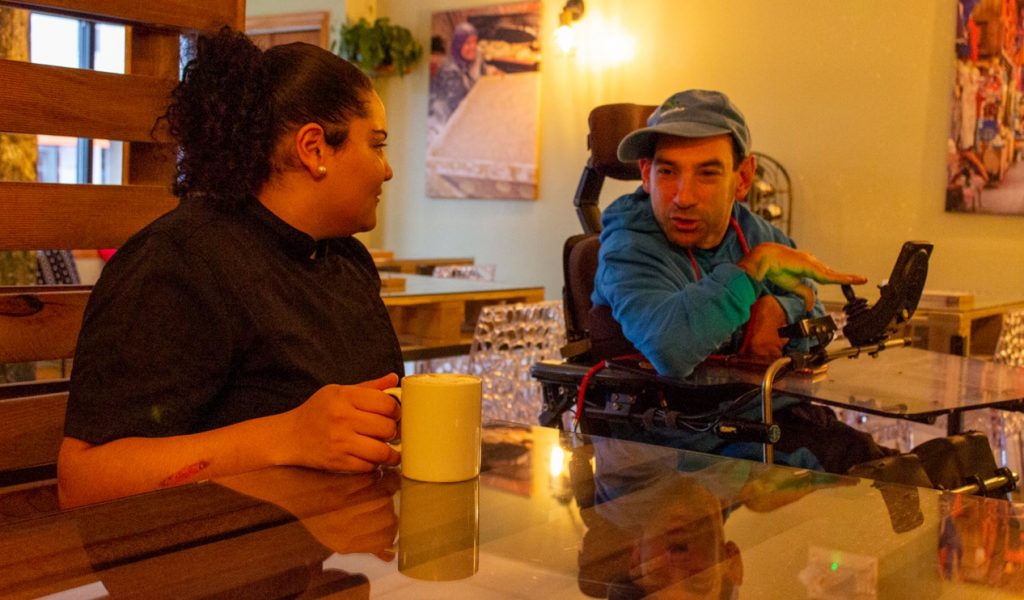
With an extensive menu of vegan (or veganized) Egyptian street food dishes—such as Torli, a vegetable stew in tomato sauce, falafel, fava bean stew and mushroom shawarma, Koshari Mama offers a unique take on the popular diet, which draws on Egypt’s longstanding vegan tradition.
Unlike American veganism, however, Egypt’s plant-based cuisine evolved out of economic considerations given how affordable and accessible vegan staples are in the North African country, where meats are considered an expensive delicacy.
“Why can’t we have a restaurant that is Earth-conscious and gives back to our planet, considering we kill it every day, you know, but still give people nutritious and delicious food that is affordable? [The word] vegan is tied with expensive, which I don’t blame you [for thinking]. It is an expensive diet … So I hear people on it being difficult on the pocket, but why can’t Koshari Mama at least provide somebody with a nutritious, delicious, affordable meal?” Fahim says.
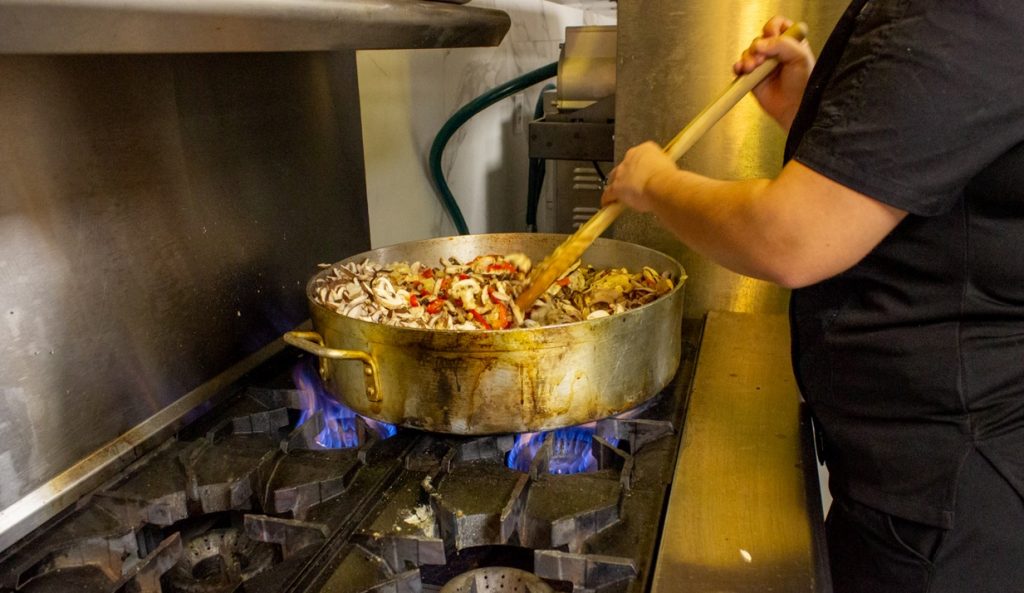
To the pair, spreading Egyptian veganism in Massachusetts is ultimately a sacred mission, and an appeal to embrace diversity, with Koshari being the perfect conduit for their message.
“The first [mention] of Koshari was in the 13th century by Moroccan traveler Ibn Battutta. He had gone to the far east and he wrote in his diary about this [Indian] dish that he loved so much, made with rice and lentils, called Kitchari … Kitchari doesn’t have pasta, but in Egypt, it does. And that is from the influence of Italian immigration [to] Egypt at one point … and then Egyptians added the fried onions and the red sauce, and the chickpeas,” Ahmed explains.
“Food travels, you know, and it changes along the way, sometimes, like people …it only makes me feel that the world is connected in reality—that, you know, we are not so, so different. We are actually quite connected.”
Featured image courtesy of Koshary Mama.







Comment (1)
[…] النساء يجلبن طعام الشارع المصري إلى ضواحي بوسطن […]